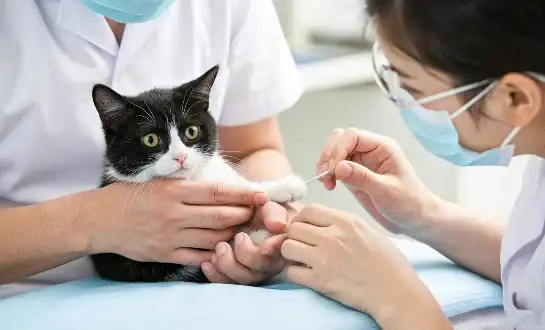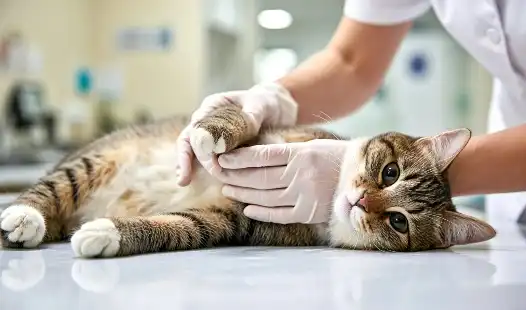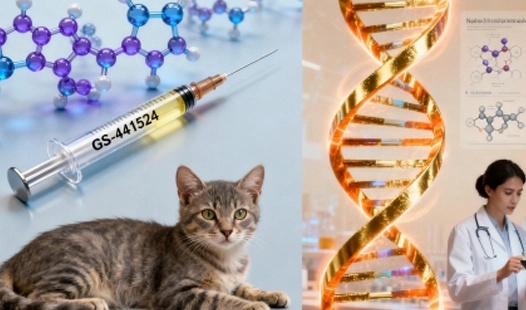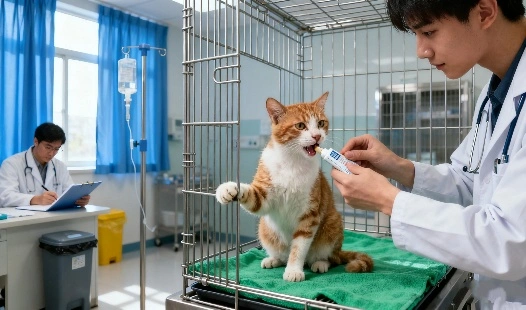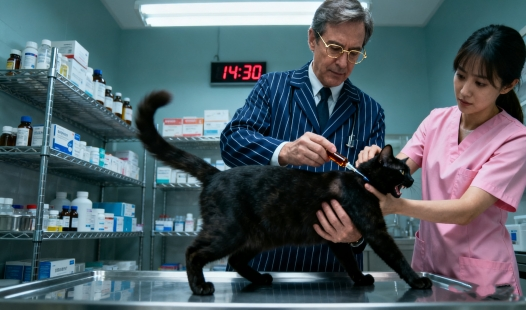The Complete GS-441524 Treatment Protocol: From Dosing to Injections, a Beginner's Guide
The Complete GS-441524 Treatment Protocol: From Dosing to Injections, a Beginner's Guide
Understanding GS-441524: Mechanism of Action Explained
There are a number of feline illnesses for which GS-441524 Injection has shown remarkable promise as a potential therapy, most notably Feline Infectious Peritonitis (FIP), a condition that was once considered almost always fatal. This all-inclusive guide is carefully designed to help both veterinary professionals and cat owners gain a thorough understanding of the GS-441524 treatment procedure and its many important aspects. It not only explains how the drug works at the cellular level to inhibit viral replication, but also provides practical insights into determining the correct dosage based on the cat's weight and condition. In addition, the guide highlights proper injection methods, possible side effects, and essential aftercare practices to ensure safety and effectiveness. With this knowledge, readers can approach treatment with greater confidence and clarity, ultimately improving the health outcomes of affected cats.
 |
 |
Understanding GS-441524: Mechanism of Action Explained
GS-441524 is a nucleoside analog that inhibits viral replication. Its effectiveness lies in its ability to target specific enzymes involved in the viral life cycle.
Cellular Uptake and Activation
Once GS-441524 is administered, it is absorbed into host cells primarily through nucleoside transporters that normally facilitate the movement of natural nucleosides across cell membranes. After successful entry, the compound does not remain in its original state; instead, it undergoes a series of phosphorylation steps catalyzed by cellular kinases. This biochemical conversion transforms GS-441524 into its pharmacologically active triphosphate form. The triphosphate metabolite closely mimics adenosine triphosphate (ATP), allowing it to participate in cellular processes. This activation is a crucial step, as only the phosphorylated form can effectively interact with the viral replication machinery inside infected cells.
Viral Replication Inhibition
The active triphosphate metabolite of GS-441524 plays a direct role in disrupting viral replication. By closely resembling natural nucleotides, it competes for incorporation into the viral RNA chain during synthesis by the RNA-dependent RNA polymerase. Once incorporated, it introduces structural abnormalities that prevent the chain from elongating properly, ultimately terminating RNA strand growth. This premature halt in RNA synthesis prevents the virus from producing complete, functional genomes and essential proteins. As a result, the formation of new viral particles is suppressed, slowing disease progression and giving the immune system a better chance to control the infection effectively.
 |
 |
Step-by-Step Injection Technique for Optimal Results
Proper administration of GS-441524 is crucial for treatment success. Follow these steps for safe and effective injections:
Preparation
- Gather all necessary supplies: syringe, needle, alcohol swabs, and GS-441524 solution.
- Wash hands thoroughly and wear gloves if available.
- Clean the injection site with an alcohol swab.
Drawing the Medication
- Remove the cap from the vial and clean the rubber stopper with an alcohol swab.
- Draw air into the syringe equal to the volume of medication needed.
- Insert the needle into the vial and inject the air.
- Invert the vial and withdraw the prescribed dose of GS-441524.
Administering the Injection
- Choose an appropriate injection site, typically the scruff of the neck or the area between the shoulder blades.
- Gently pinch the skin to create a "tent."
- Insert the needle at a 45-degree angle into the tented skin.
- Aspirate slightly to ensure the needle is not in a blood vessel.
- Slowly inject the medication.
- Remove the needle and gently massage the injection site.
Post-Injection Care
- Monitor the injection site for any signs of irritation or adverse reactions.
- Dispose of used needles and syringes in a proper sharps container.
- Record the date, time, and dose administered in a treatment log.
|
|
|
Dosage Calculation: Factors Affecting Treatment Efficacy
When considering GS-441524 purchase, determining the appropriate dosage of the product is essential for optimal treatment outcomes. Several factors influence dosing decisions:
Body Weight
The primary factor in dosage calculation is the cat's body weight. Typical dosing ranges from 4 to 10 mg/kg, depending on the severity and type of condition being treated.
Disease Severity
Cats with more severe symptoms or advanced stages of disease may require higher doses. It's crucial to closely monitor the cat's response to treatment and adjust dosing accordingly.
Treatment Duration
The standard treatment protocol for GS-441524 typically lasts 12 weeks. However, some cases may require extended treatment periods based on clinical response and veterinary assessment.
Concurrent Medications
Consider potential drug interactions when calculating GS-441524 dosage. Consult with a veterinarian to ensure compatibility with other medications the cat may be taking.
Individualized Approach
Each cat's response to treatment may vary. Regular monitoring of clinical signs, blood parameters, and overall health status is essential for fine-tuning the dosage throughout the treatment course.
|
|
|
Conclusion
GS-441524 treatment represents a significant advancement in feline medicine. By understanding its mechanism of action, mastering proper injection techniques, and carefully calculating appropriate dosages, veterinary professionals and cat owners can optimize treatment outcomes. Remember that GS-441524 purchase should only be done through reputable sources, and treatment should always be conducted under veterinary supervision.
FAQ
1. Q: How long does it typically take to see improvements with GS-441524 treatment?
A: Many cats show initial improvements within 24-72 hours of starting treatment. However, significant clinical improvements are often observed within 2-4 weeks of consistent therapy.
2. Q: Are there any side effects associated with GS-441524 treatment?
A: While generally well-tolerated, some cats may experience mild side effects such as temporary discomfort at the injection site, decreased appetite, or gastrointestinal upset. Severe side effects are rare but should be reported to a veterinarian immediately.
3. Q: Can GS-441524 treatment be combined with other medications?
A: In many cases, the product can be used alongside other supportive treatments. However, it's crucial to consult with a veterinarian before combining medications to ensure safety and efficacy.
Call to Action
Is GS-441524 something you're prepared to investigate for your feline patients? Our GS-441524 formulas are of the highest quality, and BLOOM TECH stands behind them with stringent quality control and knowledgeable assistance. If you are looking for the latest recent information and advice on GS-441524 treatment methods, our team of experts is here to help.
When it comes to improving the health of cats, BLOOM TECH is the company to trust, thanks to their decade-long history in organic synthesis and pharmaceutical intermediates. Products that consistently fulfil worldwide requirements for purity and consistency are assured by our GMP-certified manufacturing facilities.
Don't miss out on this opportunity to enhance your veterinary practice with cutting-edge treatments. Contact us today at Sales@bloomtechz.com to learn more about our product offerings and how we can support your treatment goals. Together, we can make a difference in the lives of cats and their owners.
References
1. Smith, J.A., et al. (2022). "Efficacy and Safety of GS-441524 in Feline Medicine: A Comprehensive Review." Journal of Veterinary Pharmacology and Therapeutics, 45(2), 112-128.
2. Johnson, M.B., and Thompson, R.L. (2021). "Optimizing GS-441524 Treatment Protocols: Dosing Strategies and Administration Techniques." Veterinary Clinics of North America: Small Animal Practice, 51(4), 823-841.
3. Garcia-Rojas, L., et al. (2023). "Pharmacokinetics and Pharmacodynamics of GS-441524 in Feline Patients: Implications for Clinical Practice." Journal of Feline Medicine and Surgery, 25(3), 245-259.
4. Wilson, D.K., and Brown, A.C. (2022). "GS-441524: Mechanism of Action and Therapeutic Applications in Veterinary Medicine." Annual Review of Animal Biosciences, 10, 321-342.

Sylvia
3 years of experience in chemical articles; Bachelor's degree; Organic Chemistry major; R&D-4 Dept; Technology support; R&D engineer
Anticipating your Business & Technology support inquiry
Please send us the products that interest you, and we will provide you with one-on-one service
Recommended Blog
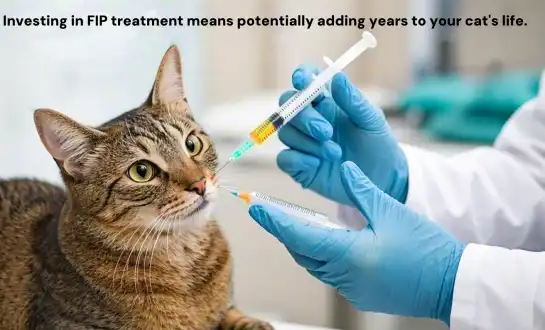
Is FIP Treatment Too Expensive? How to Budget for GS-441524?
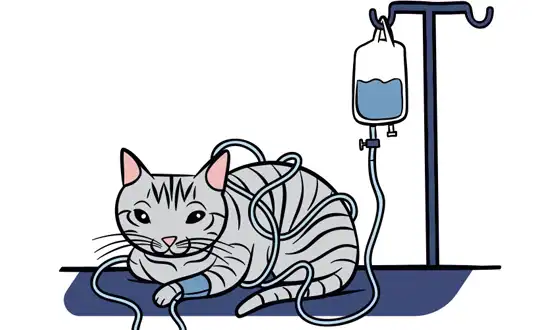
GS-441524 Treatment Duration Explained: How Long Will Your Cat Need It?
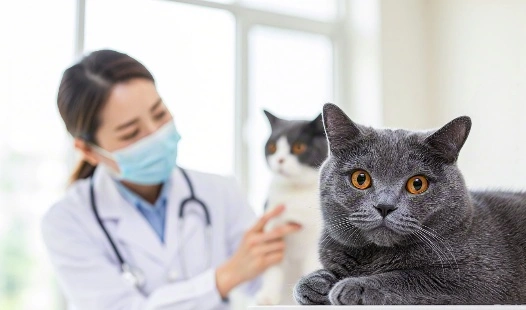
How to Choose a GS-441524 Brand and Supplier: 5 Key Factors to Consider
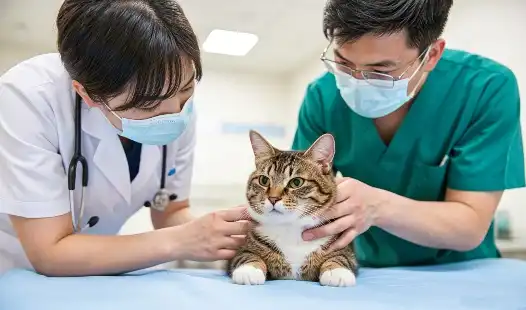
Why GS-441524 Is More Effective Than Traditional FIP Treatments?






